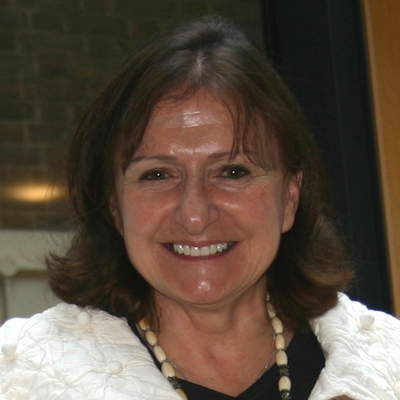 On Monday 25 February Birkbeck held an Athena SWAN mentoring event, primarily aimed at women working in STEM (science, technology, engineering and mathematics) fields. Professor Annette Karmiloff-Smith, Professorial Research Fellow in the Department of Psychological Sciences, shares her advice, gained over her 36-year career as an academic in Switzerland, Holland and the UK .
On Monday 25 February Birkbeck held an Athena SWAN mentoring event, primarily aimed at women working in STEM (science, technology, engineering and mathematics) fields. Professor Annette Karmiloff-Smith, Professorial Research Fellow in the Department of Psychological Sciences, shares her advice, gained over her 36-year career as an academic in Switzerland, Holland and the UK .
My experience with mentoring young scientists has been that most females focus on how to balance career with having children, and less often on how to advance their careers, yet of course they should do both. By contrast, males tend to focus mainly on career advancement, rarely raising the problem of balance with family life, yet they too should do both.
The two-body problem
Academics often have academic partners, although the problems are just as difficult when one partner’s career is outside academia. One lesson I have learnt is that one must discuss everything beforehand. Don’t wait until the problems arise and resentment creeps in. Be objective, realising in advance that one of you may get a superb offer in a place where the other cannot find something suitable. What will happen if that arises? Whose career will have precedence (certainly not automatically the man’s!)? How will you find compromises that meet both your needs to some extent, even if not to perfection? Whose career is more transportable? All these issues must be faced in advance, without which debates end up in resentment for one party and guilt for the other…. often resulting in a doomed relationship. You have to ask yourself, which is more important: career or relationship, even if both are important. The solution isn’t to pretend the issue won’t arise!
Integrating family and career
Many young academics desire a child. It is often assumed that a busy career means a single child. In a newspaper article many years ago, Katherine Whitehorn raised the question “one child or many?” and concluded that, if you are a busy professional, it may be better – albeit counterintuitive – to have several children! She reasoned that a singleton waits desperately for mum (or dad) to come home, whereas several children just muck in together and barely notice their parent is away. What about maternity leave? Fortunately, since I was a mother, maternity (and paternity) leave has vastly improved, so you could devote yourself entirely to the new arrival. This is clearly your right, but is it such a good idea? My advice is that, if you intend to pursue your career, then don’t cut off completely during the maternity leave. Save a special time each day to check email, read the latest article, jot down notes for your next article or research project. You are going to have to juggle both once you return to work, so start practising gently now. Remember that the smaller the baby the more s/he sleeps, so take your baby to special lectures or a conference. Feed the baby just before it starts and hopefully s/he’ll sleep right through. Do sit on an aisle seat, though, in case s/he starts screaming!! And, once you’re back fulltime at work, agree with your partner in advance on how you will both decide who will come home anytime the baby is sick – not automatically the mother!
Focus your research
When you had no home responsibilities, it may have been fine to dabble in numerous research projects, but once there are family responsibilities, it is essential to focus your research. Try to arrange to teach on courses that are related to your research so that your reading serves both.
Avoiding guilt
Remind yourself frequently that you cannot be superwoman! Keep an eye on your health and remember that sleep isn’t only a time of rest, but that parts of the brain are more active during sleep than wakefulness and that sleep is critical for the consolidation of memory. Avoid guilt, and learn to say “No” to requests to take on extra tasks. Protect yourself at this time of your career; you can be an avid volunteer in the future. Tell yourself that it’s OK to use day-care and, when you drop off your child, leave with a confident stride. Babies pick up on their parents’ doubts. Do ask for help when you need it. You don’t have to prove you can do it all alone.
You never stop being a mum…
A personal ending: I thought that when my daughters left the nest, had their own careers and families, I could simply get on with my career without a second thought… Alas no! Now the potential guilt raises its head again: how do I juggle expected grandmother duties (I have seven) with the pressures of my academic career? Rest assured, I have no regrets… having children, grandchildren and a busy career have fulfilled my life.
